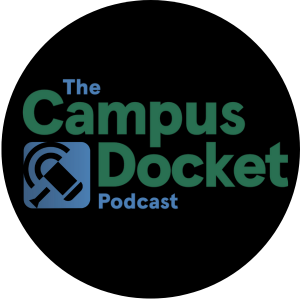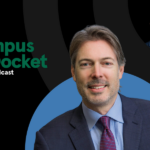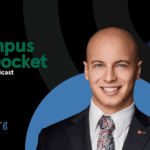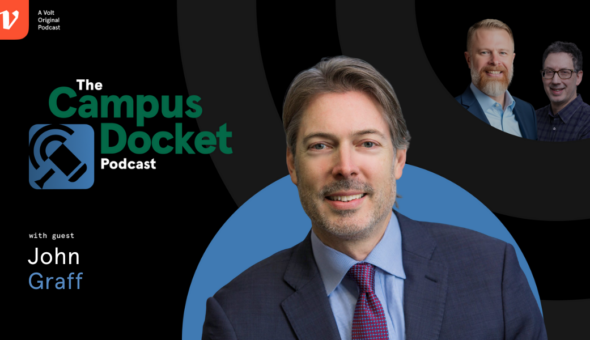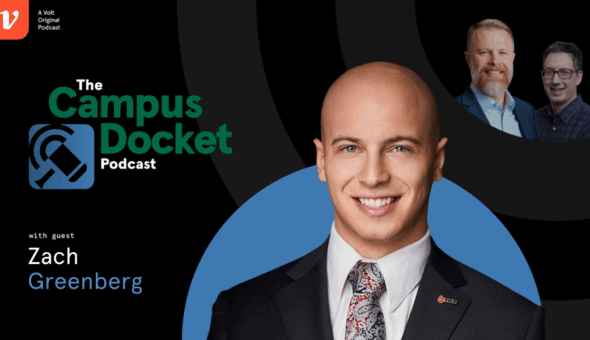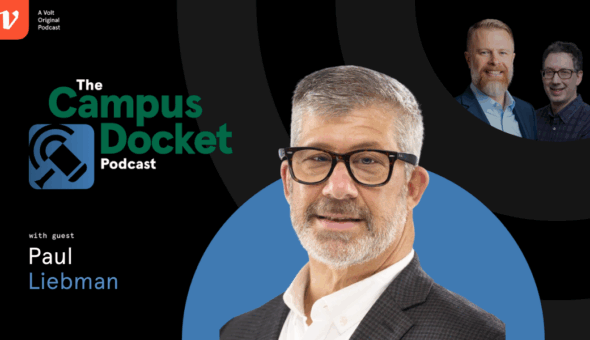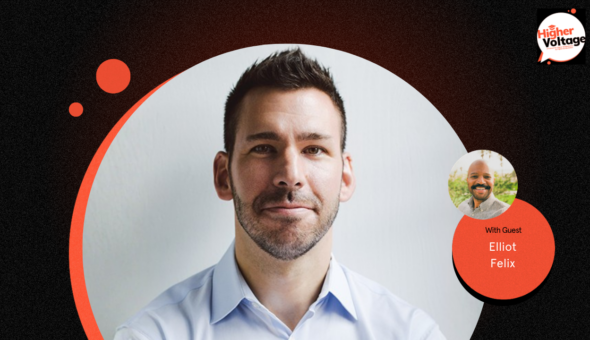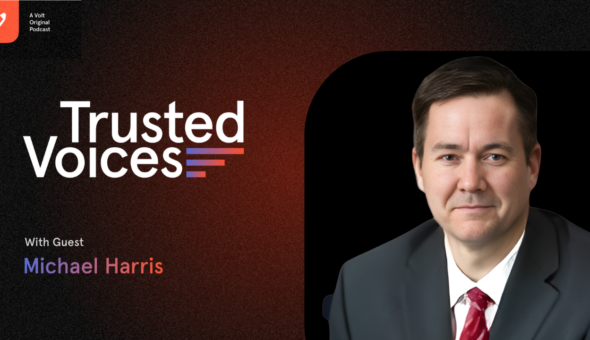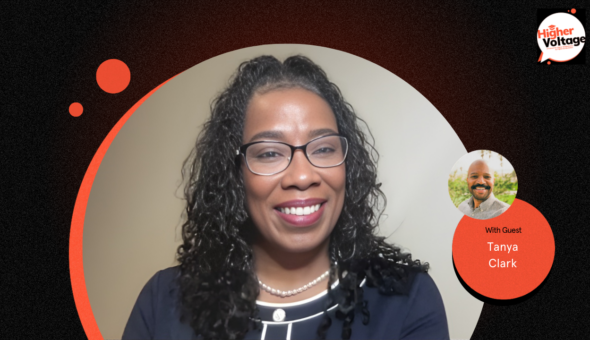The False Claims Act, civil rights, and a legal curveball for higher ed.
If they haven’t already, higher ed leaders need to brace for scrutiny.
That’s because, in a first-of-its-kind legal maneuver, the Trump administration is leveraging the False Claims Act—a 19th-century fraud statute—against higher ed institutions in an unprecedented way. In this episode of Campus Docket, co-hosts Scott Schneider and Eric Kelderman sit down with Zachary Cunha, former U.S. Attorney and now a partner at Nixon Peabody, to unpack what this pivot means for colleges and universities.
The False Claims Act (FCA) was originally created during the Civil War to prevent military fraud and has evolved over time to address everything from healthcare billing to cybersecurity. But its latest chapter may be the most legally murky yet. Under the new Civil Rights Fraud Initiative, the Department of Justice is signaling that institutions receiving federal funds could face FCA investigations if their DEI or civil rights-related policies are deemed noncompliant—or worse, “illegal.”
Cunha draws a sharp line between legitimate FCA enforcement and what he calls “collateral risk.” The act’s broad whistleblower provisions, combined with the ambiguity around what constitutes “illegal DEI,” could invite politically motivated claims. And because FCA cases often turn on context-specific standards like materiality and intent, institutions may find themselves facing months (or years) of investigation, even if no wrongdoing is ultimately proven.
The conversation offers both legal nuance and strategic foresight. Cunha encourages campus counsel to assess grant certifications, clarify institutional intent behind policy changes, and brace for scrutiny—even if no claim has been filed yet. The stakes aren’t just financial; they’re reputational, operational, and potentially existential.
Whether this tactic will hold up in court remains to be seen. But one thing is clear: higher ed is being pulled into a new legal frontier, where compliance, politics, and risk management are more entangled than ever.
The Docket
- United States ex rel. Thomas v. Duke University (2019)
- A former research analyst at Duke filed a whistleblower (qui tam) suit alleging that a Duke lab submitted falsified data in grant applications to the NIH and EPA. The claim argued Duke knowingly submitted fraudulent data to receive federal research funds.
- Duke settled for $112.5 million, one of the largest FCA settlements involving a university.
- Universal Health Services, Inc. v. Escobar (2016)
- The plaintiffs alleged that a mental health provider submitted Medicaid claims while violating state licensing and supervision requirements.
- This case is now a foundational precedent in FCA litigation and has made it harder for plaintiffs and the government to win FCA cases unless they can show the falsehood mattered a lot to the government’s decision to pay.
- United States v. SuperValu Inc. / Safeway Inc. (Consolidated with Consulis) (2019)
- The companies were accused of knowingly overcharging Medicare and Medicaid for prescription drugs.
- While SuperValu focused on intent, it re-emphasized Escobar’s materiality rule and clarified that both intent and materiality must be contextually supported.
- Bostock v. Clayton County (2020)
- Supreme Court decision holding that Title VII protects employees against discrimination based on sexual orientation and gender identity.
- SFFA v. Harvard & UNC (2023)
- In a 6–2 decision, the Court found both Harvard’s and UNC’s use of race in admissions unconstitutional—policies lacked clear objectives, narrow tailoring, and measurable end points.
- News on Legal Developments
- Additional Legal Concepts and Entities Referenced
- Title VI (discrimination based on race, color, and national origin in programs and activities that receive federal funds)
- Title VII (employment discrimination)
- Title IX (gender equity in education)
- False Claims Act (FCA)
- Civil Rights Fraud Initiative
- Americans with Disabilities Act (ADA)
- Age Discrimination and Employment Act (ADEA)
- Office for Civil Rights (OCR)
